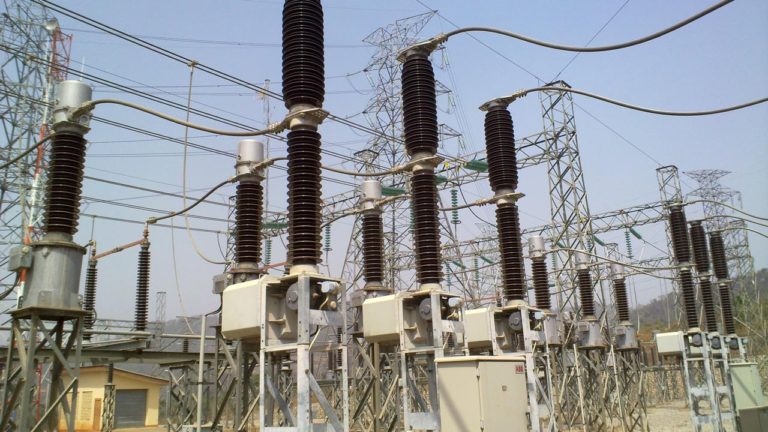
DisCos reject 1,400mw over insufficient capacity
$800 million to be invested by the Fed in distribution and substations
An important obstacle in the chain of supply for energy is that distribution firms, or DisCos, have not been able to absorb the entire generation of power in the recent past.
Chief Adebayo Adelabu, the Minister of Power, stated yesterday that power generation has fallen by 1,400 megawatts because DisCos were unable to select the supply, with a peak of 5,170 megawatts on Friday, August 30, 2024.
The government is on track to raise generation to 6,000 megawatts by the end of the year, so this is quite unfortunate, Adelabu said.
Nonetheless, he gave his word that every effort would be made to guarantee that the nation would have a steady supply of power.
Speaking at a facilities tour of TBEA Southern Power Transmission and Distribution Industry in Beijing, China, Adelabu is a member of President Bola Tinubu's delegation to the China-Africa Cooperation Summit.
According to him, the Presidential Power Initiative (PPI) will see the federal government disburse $800 million to build substations and distribution lines.
With this funding, Lot 2's substations as well as Lot 3's distribution lines—which will each cost $400 million—will be built.
The Benin, Port Harcourt, and Enugu DisCos' franchise regions are covered by Lot 2, and the Abuja, Kaduna, Jos, and Kano DisCos' franchise areas are covered by Lot 3.
During a conversation with TBEA management, Adelabu gave assurances regarding the federal government's dedication to collaborating with top-tier organisations such as TBEA to realise President Bola Tinubu's Renewed Hope vision for Nigeria's power sector. This includes initiatives related to the transmission and distribution of the country's renewable energy sector as well as the country's entire power sector value chain.
Speaking about the issues facing the electricity industry that have impeded the expansion of industry, the Minister stated that a portion of the problem might be attributed to the brittleness of the ageing and decaying transmission and distribution infrastructure. "As a result, homes, businesses, and industry have historically experienced an epileptic power supply."
Over 59% of Nigeria's industries, in his estimation, operate off the grid. They did not think highly of the national grid's dependability. Thus, many of them currently run on their own self-generated, captive electricity.
According to Adelabu, the administration of President Bola Ahmed Tinubu is committed to changing the power industry. He also mentioned that several initiatives have been launched that are progressively restoring consumer and industry confidence in the industry.
Adelabu acknowledged the many government initiatives, but he also reflected on how Nigeria was only able to generate 2,000 megawatts in 1984, or roughly 40 years ago, and how it took us more than 35 years to add another 2,000 megawatts. When this administration took office last year, we had about 4 gigawatts (4,000 megawatts) of power. However, in less than a year, we were able to produce 5,170 megawatts, increasing roughly 1000 megawatts of power in just the first year. Although it may appear insignificant, this is admirable given the nation's past. By the end of the year, we hope to generate 6,000 megawatts of electricity from our gas-fired power plant and hydroelectric power plants combined. As we are also targeting 30 gigawatts of Power to be generated, transmitted and distributed by year 2030 out of which 30 percent would be renewable energy”.
According to him, the section of renewable energy will be made up of solar energy, wind farms powered by both onshore and offshore winds, and hydroelectric electricity from tiny dams.
Regarding the super grid project, the minister stated that the current national system is unable to satisfy the industry's goals for the electricity sector. The building of the Western and Eastern super grids was necessary since, given its age, strength, and capacity, the National grid is not truly able to fulfil our vision for the electricity industry. We have been working on this since my return, but I can also assure you that the President fully supports this because this will improve our transmission network, stabilise the grid and also expand the capacity and the flexibility of the National grid”.
He stated that the necessary 90 percent of approvals were in place and will be completed shortly.
In a previous speech, Huang Hanjie, President of TBEA, pledged the organization's ongoing support of the Nigerian government's power sector goal. According to him, TBEA is present in 100 countries and is eager to offer its knowledge of energy supply. He added that TBEA is currently working with the Niger Delta Power Holding-owned Omotosho power plant in Ondo State, proving that the company is not new in Nigeria.
Hanjie also expressed his appreciation for the Minister's leadership in the electricity industry, citing increased generation and transmission since taking office. He added TBEA would be happy to collaborate with the Nigerian government to realise the objective and support the ongoing power sector transformation in the nation, while also noting the short-term improvement to 6 gigawatts by December 2024 and 30 gigawatts by 2030.
He expressed TBEA's interest in being involved in the Super grid project that the Nigerian government was proposing, by offering its expertise to ensure the project's success.





